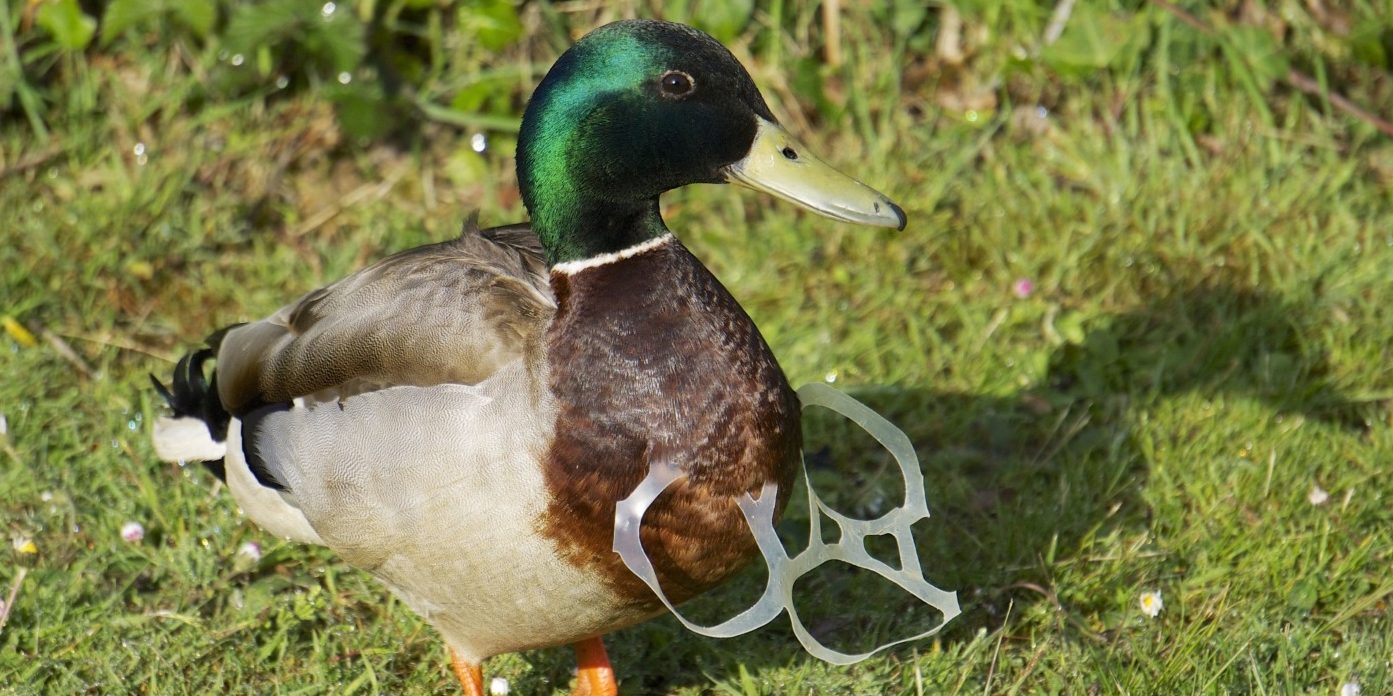Number of animals getting caught in plastic in Warwickshire rises
The cases of animals caught in plastic has been rising in Warwickshire for three years, the RSPCA reveals.
Last year, there were 12 cases of animals caught in plastic compared with none just three years earlier.
Plastic injuries in this way can be fatal for animals as RSPCA investigators were forced to put a duck to sleep after it got a plastic ring stuck around his bill and the back of his head.
Local environmental charity Action21 told The Boar:
“Plastic waste is a huge problem and it’s affecting wildlife both at a global and local level. Emphasising individual impact is crucial to protecting our ecosystem. No contribution is too small.
“Plastic should be disposed of properly and where possible reused or recycled. While disposing of plastic waste properly is a key first step, it’s important to look to the bigger picture.
“Making mindful choices about what we consume with a view to reducing both what we buy and consequently what we dispose of will help us move beyond disposable consumerism to a more sustainable and conscious mind-set that is better all for us, our local and global wildlife, and the planet.”
Warwick District Council’s safer communities team has not been made aware of incidents with animals being caught up in plastic.
Adam Grogan, Head of Wildlife at the RSPCA describes how “every year, the RSPCA deals with increasing numbers of mammals, birds and reptile that have become entangled or affected in some way by discarded plastic.”
He said: “This shocking rise in plastic litter incidents suggests that plastic is a growing threat to animals.
“From seals with deep infected wounds caused by plastic Frisbees cutting into their necks, to swans and geese trapped in fishing line or netting, plastic is clearly having an increasing impact on animal welfare.
“Our latest data sadly reflects the wider litter crisis taking place right across the globe and action is urgently needed. It’s up to every one of us to do our bit in the war against litter.”
Warwick Sustainable Development Society (WSDS) are promoting an anti-plastic campaign both on and off campus, encouraging students “to make smart disposal of waste a fundamental part of their lifestyle”.
It’s extremely concerning that in Warwickshire the number of animals killed or injured by litter is rising year on year
– Matt Western MP
President Zeba Zaidi said: “Cases of animals getting caught in plastic is something that people can only imagine affecting marine life but now the problem is at our own doorsteps. It’s unfortunate that we have reached this state. We can no longer continue to ignore these issues.
“Change needs to start at a grass root level and students can make a difference by simply being more careful about how they dispose of their waste.
“University life can be gruelling and whilst most of us want to make a change, we feel powerless to do so without investing a lot of time and energy. What we don’t realise is that sometimes the simplest actions can have the biggest impact.”
Matt Western MP also vocalised his concerns about this Warwickshire issue. He said: “It’s extremely concerning that in Warwickshire the number of animals killed or injured by litter is rising year on year.
“Last year I was proud to have co-sponsored a Bill that would force producers of packaging products assume responsibility for it. The government needs to take decisive action to reduce non-recyclable waste and ensure that the UK keeps up with the EU’s ambitious target to ban many single-use plastics by 2021.
“Litter in Leamington and Warwick is becoming an increasing issue. We all need to play our part to keep our community clean and protect local wildlife.”
In April 2018, Clean Up Britain launched a campaign titled ‘Now or Never’, where it is trialling in Leamington.
With the support of over 40 local businesses and organisations, including the University of Warwick, it aims to change the behaviour of those discarding rubbish thoughtlessly. Councillor Moira-Ann Grainger commented: “I’m delighted that Warwick District Council is supporting this initiative.
“Our award-winning parks and gardens and two centre spaces are well maintained and cared for, but we do recognise that there is so much more we can all do towards improving and protecting our environment.
“We hope that by trialling this initiative here in the heart of the country, we will be able to show how making small changes can have a huge impact on the future of our environment.”

Comments (1)